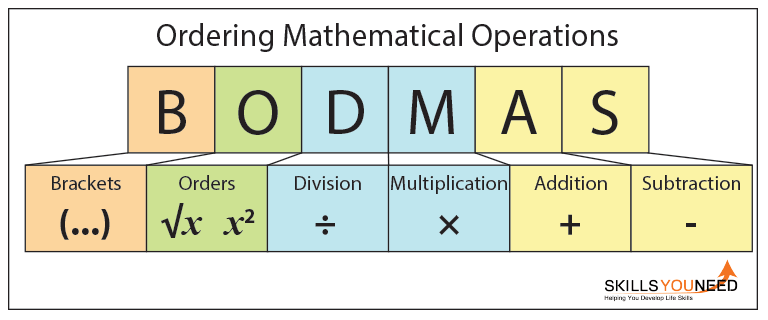WHAT IS CRYPTOCURRENCY
A cryptocurrency, crypto-currency, or crypto
is a digital asset designed to work as a medium of exchange wherein
individual coin ownership records are stored in a ledger existing in a
form of a computerized database using strong cryptography to secure
transaction records, to control the creation of additional coins, and to
verify the transfer of coin ownership. Cryptocurrency does not exist in
physical form (like paper money) and is typically not issued by a
central authority. Cryptocurrencies typically use decentralized control
as opposed to a central bank digital currency (CBDC). When a
cryptocurrency is minted or created prior to issuance or issued by a
single issuer, it is generally considered centralized. When implemented
with decentralized control, each cryptocurrency works through
distributed ledger technology, typically a blockchain, that serves as a
public financial transaction database.
Bitcoin, first released
as open-source software in 2009, is the first decentralized
cryptocurrency. Since the release of bitcoin, many other
cryptocurrencies have been created.
What Are Cryptocurrencies?
Before we take a closer look at some of these alternatives to Bitcoin, let?s step back and briefly examine what we mean by terms like cryptocurrency and altcoin. A cryptocurrency, broadly defined, is virtual or digital money that takes the form of tokens or ?coins.? While some cryptocurrencies have ventured into the physical world with credit cards or other projects, the large majority remain entirely intangible.
The ?crypto? in cryptocurrencies refers to complicated cryptography that allows for the creation and processing of digital currencies
and their transactions across decentralized systems. Alongside this important ?crypto? feature of these currencies is a common commitment to decentralization; cryptocurrencies are typically developed as code by teams who build in mechanisms for issuance (often, although not always, through a process called ?mining?) and other controls.
Cryptocurrencies are almost always designed to be free from government manipulation and control, although as they have grown more popular, this foundational aspect of the industry has come under fire. The currencies modeled after Bitcoin are collectively called altcoins, and in some cases ?shitcoins,? and have often tried to present themselves as modified or improved versions of Bitcoin. While some of these currencies may have some impressive features that Bitcoin does not, matching the level of security that Bitcoin?s networks achieve largely has yet to be seen by an altcoin.
Below, we?ll examine some of the most important digital currencies other than Bitcoin. First, though, a caveat: It is impossible for a list like this to be entirely comprehensive. One reason for this is the fact that there are more than 4,000 cryptocurrencies in existence as of January 2021. While many of these cryptos have little to no following or trading volume, some enjoy immense popularity among dedicated communities of backers and investors.
Beyond that, the field of cryptocurrencies is always expanding, and the next great digital token may be released tomorrow. While Bitcoin is widely seen as a pioneer in the world of cryptocurrencies, analysts adopt many approaches for evaluating tokens other than BTC. It?s common, for instance, for analysts to attribute a great deal of importance to ranking coins relative to one another in terms of market capitalization. We?ve factored this into our consideration,
but there are other reasons why a digital token may be included in the list as well.
TYPES OF CRYPTOCURRENCY
Here?s a list of popular cryptocurrency types and descriptions:
1. Bitcoin
Bitcoin is a type of digital currency; it is ?cash for the internet.? More specifically, it?s considered cryptocurrency since cryptography facilitates Bitcoin creation and transactions.
Possibly the ?Kleenex? or ?Coca Cola? of all crypto, in that its name is the most recognizable and the most closely associated with the cryptocurrency system.
There are currently more than 18.5 million Bitcoin tokens in circulation, against a present capped limit of 21 million.
2. Bitcoin Cash
Introduced in 2017, Bitcoin Cash is one of the most popular types of cryptocurrency on the market. Its main difference with the original Bitcoin is its block size: 8MB. Compare that to the original Bitcoin?s block size of just 1MB. What that means for users ? faster processing speeds.
3. Litecoin
Litecoin is increasingly used in the same breath as Bitcoin, and it functions practically the same way. It was created in 2011 by Charlie Lee, a former employee of Google. He designed it to improve on Bitcoin technology, with shorter transaction times, lower fees, more concentrated miners.
4. Ethereum
Unlike Bitcoin, Ethereum focuses not as much on digital currency as it does on decentralized applications (phone apps). You could think of Ethereum as an app store.
The platform is looking to return control of apps to its original creators, and take away that control from middlemen (like Apple, for instance). The only person who can make changes to the app would be the original creator. The token used here is called Ether, which is used as currency by app developers and users.
5. Ripple
Ripple is one type of cryptocurrency on the list, but it?s not Blockchain-based . It?s not meant so much for individual users as it is for
larger companies and corporations, moving larger amounts of money (its coinage is known as XRP) across the globe.
It?s more well-known for its digital payment protocol more than for its XRP crypto. That?s because the system allows for transfer of monies in any form, be it dollars or even Bitcoin (or others). It claims to be able to handle 1,500 transactions per second (tps). Compare this with Bitcoin, which can handle 3?6 tps (not including scaling layers). Ethereum can handle 15 tps.
6. Stellar
Stellar focuses on money transfers, and its network is designed to make them faster and more efficient, even across national borders. It was designed by Ripple co-founder Jed McCaleb in 2014 and is operated by a non-profit organization called Stellar.org .
Its goal is to assist developing economies
that may not have access to traditional banks and investment opportunities. It doesn?t charge users or institutions for using its Stellar network, and covers operating costs by accepting tax-deductible public donations.
7. NEO
Formerly called Antshares and developed in China, NEO is very aggressively looking to become a major global crypto player. Its focus is smart contracts (digital contracts) that allow users to create and execute agreements without the use of an intermediary.
It?s going after its main competition, Ethereum, but NEO lead developer Erik Zhang mentioned on a Reddit AMA that NEO has three distinct advantages ? better architecture, more developer-friendly smart contracts, and digital identity and digital assets for easier integration into the real
world.
Ethereum, on the other hand, uses its own programming languages that developers must first learn before creating smart contracts on its platform.
8. Cardano
Cardano aka ADA is used to send and receive digital funds. It claims to be a more balanced and sustainable ecosystem for cryptocurrencies, and the only coin with a ?scientific philosophy and research-driven approach.?
That means that it undergoes especially rigorous reviews by scientists and programmers. It was founded by Charles Hoskinson, who is also the co-founder of Ethereum.
9. IOTA
Launched in 2016, IOTA stands for Internet of Things Application. Unlike most other Blockchain technologies, it doesn?t actually work with a block and chain; it works with smart devices on the Internet of Things (IoT).
All you need to do to use it is to verify two other previous transactions on the IOTA ledger, which is called the Directed Acyclic Graph (DAG), but IOTA creators call it The Tangle.
According to Coin Central , this means the devices need to be able to purchase more electricity, bandwidth, storage, or data when they need them, and sell those resources when they don?t need them.
Importance of cryptocurrency
Investing in Bitcoin is like investing in the future. Any serious investor knows that the value of cryptocurrencies will begin to grow during the forecast period. By trading Bitcoin through Click Finance System until it was too late, you can get your foot through the door of a growing industry.
The world economy would inevitably shift to a digital ecosystem. All is becoming paperless, from savings to money transactions. Cryptocurrency is the newest and most exciting application to the electronic payment market.
A cryptocurrency is a payment model comparable to conventional currencies such as the US dollar, except developed exclusively
to exchange digital data. Much helped describe cryptocurrency as a decentralized ?digital or virtual asset that?s stored for safe transactions.?
Is it safe to invest in cryptocurrency
Investments are always risky, but some experts say cryptocurrency is one of the riskier investment choices out there, according to Consumer Reports. However, digital currencies are also some of the hottest commodities. Earlier this year, CNBC forecasted that the cryptocurrency market is expected to reach a value of $1 trillion by the end of 2018. If you?re planning to invest in cryptocurrencies, these tips can help you
make educated choices.
Research Exchanges
Before you invest one dollar, learn about cryptocurrency exchanges. These platforms provide the means to buy and sell digital currencies, but there are 500 exchanges to choose from, according to Bitcoin.com. Do your research, read reviews and talk with more experienced investors before moving forward.
Know How to Store Your Digital Currency
If you buy cryptocurrency, you have to store it. You can store it on an exchange or in a digital ?wallet,? for example one of the crypto wallets described in our Blog post Which cryptocurrency wallet to choose. While there are many different kinds of wallets, each has
its own benefits, technical requirements and security. As with exchanges, you should investigate your storage choices before investing.
Diversify Your Investments
Diversification is a key to any good investment strategy, and it holds true when you?re investing in cryptocurrency too. Don?t put all of your money in Bitcoin, for example, just because that?s the name you know. There are thousands of options, and it?s best to spread your investment around to several currencies.
Prepare for Volatility
The cryptocurrency market is a volatile one, so be prepared for ups and downs. You?ll see dramatic swings in prices. If your investment portfolio or mental wellbeing can?t handle that, cryptocurrency might not be a wise
choice for you.
Cryptocurrency is all the rage right now, but remember, it?s still in its infancy. Investing in something that?s new comes with challenges, so be prepared. If you plan to participate, do your research and invest conservatively to start.
SUCCESS STORIES OF CRYPTO TRADERS
- Glauber contessoto
Glauber Contessoto took a big risk on dogecoin, a meme-inspired cryptocurrency that began as a joke, earlier this year.
Between his savings and borrowed funds, Contessoto says that he invested over $250,000 in dogecoin on February 5 when it was priced at about 4.5 cents. About two months later, on April 15, he says he became
a dogecoin millionaire on paper.
2. Vitalik buterin
Buterin is a co-founder and inventor of Ethereum, described as a ?decentralised mining network and software development platform rolled into one? that facilitates the creation of new cryptocurrencies and programs that share a single blockchain (a cryptographic transaction ledger).
Buterin become the YOUNGEST CRYPTO BILLIONAIRE at the age of 27.
3. Eric finman
ERIC FINMAN become the youngest bitcoin millionaire at the age of 18. Eric took the money from grandmother.
In May of 2011, at the age of 12, Finman struck a deal with his parents to be able to skip college in pursuit of an unorthodox education, provided he could invest successfully. The deal? He had to turn $1,000 in cash that his grandmother gave him into an impressive $1 million. Finman pursued his goal relentlessly and managed to succeed, purchasing about $1,000 worth of Bitcoin when the fledgling currency was at just $12 per coin, as well as a number of other digital currencies including Ether, Ethereum?s native token. Finman was successful in his goals, making him a self-made millionare at the age of 18.
These are the few Success stories about the cryptocurrency market.
So how you can learn cryptocurrency?
This software can help to make profit in bitcoin
It is designed by the most successful bitcoin investors.
? Guide 1: What is Bitcoin and
? Cryptocurrency
? Guide 2: How Is The Value of Bitcoin Determined
? Guide 3: Different techniques to acquiring bitcoin
? Guide 4: Everything you need to know about Bitcoin Mining
? Guide 5: Storing your Bitcoin and other cryptocurrency safely
? Guide 6: Trading and Selling your Bitcoin for profit
? Guide 7: Using Bitcoin as an investment strategy
? Guide 8: Accepting and using Bitcoin in your business
? Guide 9: Protect yourself against fraud
? and theft
? Guide 10: The Future of Cryptocurrency
YOU CAN BUY FROM HERE
FOR MORE YOU CAN CONTACT ME ON INSTAGRAM @ABHISHEKBATTAA














